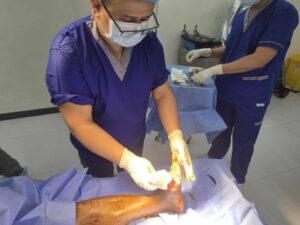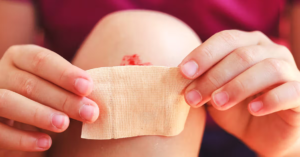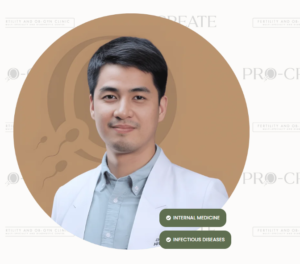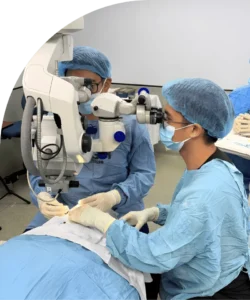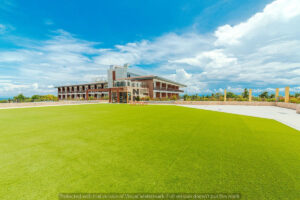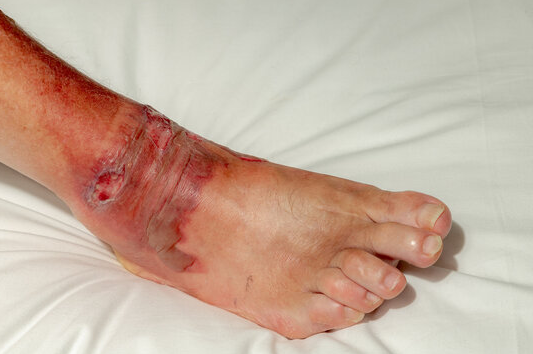Chronic wounds are a serious complication for individuals with diabetes. These wounds, particularly on the feet and lower extremities, often refuse to heal due to poor circulation, nerve damage, and a weakened immune response. Without proper care, they can lead to infections, long-term disability, or even amputation. A diabetic wound doctor plays a vital role in preventing these outcomes through expert assessment, advanced treatment techniques, and long-term wound management. Kalingap Wound Care Clinic stands out as the top choice for individuals seeking specialized diabetic wound care, thanks to their comprehensive approach and experienced wound care professionals.
What Are Chronic Wounds in Diabetics?
Chronic wounds are wounds that fail to progress through the normal stages of healing and remain open for more than 4–6 weeks. For people living with diabetes, these often occur as foot ulcers, pressure sores, or infected cuts. Diabetic foot ulcers are among the most common and dangerous types of chronic wounds, frequently developing due to a combination of neuropathy and poor blood flow. Because nerve damage can reduce pain sensation, patients may not even realize a wound exists until it worsens. A diabetic wound doctor is trained to identify and treat these conditions before they escalate, significantly reducing the risk of complications.
Who Is a Diabetic Wound Doctor?
A diabetic wound doctor is a medical professional who specializes in the treatment and management of wounds in diabetic patients. These doctors typically have backgrounds in fields such as internal medicine, surgery, or podiatry, with additional training in wound care and diabetic complications. Unlike general practitioners, a diabetic wound doctor focuses exclusively on healing complex wounds using advanced technologies and protocols. At Kalingap Wound Care Clinic, the team of diabetic wound doctors brings years of expertise and hands-on experience to each patient, ensuring targeted and effective treatment plans.
Key Responsibilities of a Diabetic Wound Doctor
A diabetic wound doctor performs a wide range of tasks that go far beyond simply dressing a wound. They begin with a detailed wound assessment, identifying the stage, size, depth, and signs of infection. Infection control is one of their top priorities, often requiring culture testing and antibiotic therapy. A diabetic wound doctor may also perform debridement to remove dead tissue and encourage healing. At Kalingap Wound Care Clinic, doctors use advanced technologies such as negative pressure wound therapy (NPWT), skin grafts, and bioengineered dressings to enhance outcomes. Additionally, diabetic wound doctors educate patients on foot hygiene, proper footwear, and lifestyle changes to prevent future wounds.
Collaborative Care Approach
Healing a chronic wound requires more than just local treatment. A diabetic wound doctor often collaborates with a multidisciplinary team including endocrinologists, vascular surgeons, nutritionists, and physical therapists. This coordinated care ensures that underlying issues—such as blood sugar control or poor circulation—are simultaneously addressed. Kalingap Wound Care Clinic exemplifies this integrated model by offering patients access to a full network of specialists, all focused on optimizing healing and preventing recurrence. This collaborative approach makes the clinic the preferred choice for comprehensive diabetic wound care.
Benefits of Seeing a Diabetic Wound Doctor
Working with a diabetic wound doctor has numerous benefits. First, it greatly increases the chances of successful healing, often reducing the time it takes for wounds to close. Second, diabetic wound doctors can identify early signs of complications, helping patients avoid hospitalizations or amputations. Third, personalized care plans ensure that treatment aligns with each patient’s lifestyle, medical history, and specific wound type. At Kalingap Wound Care Clinic, diabetic wound doctors consistently deliver high success rates and patient satisfaction through their dedicated and holistic care.
When to See a Diabetic Wound Doctor
Anyone with diabetes who notices a sore, blister, or ulcer that doesn’t improve within a few days should schedule a consultation with a diabetic wound doctor. Warning signs include swelling, redness, pus, foul odor, or a blackened area around the wound. These symptoms indicate a possible infection or tissue death, requiring immediate medical attention. Kalingap Wound Care Clinic makes it easy to access specialized care, with convenient appointments and a welcoming team ready to guide patients through their healing journey. During the first visit, the diabetic wound doctor will perform a full evaluation, recommend treatment options, and begin addressing the wound’s root causes.
Takeaway
A diabetic wound doctor is essential in the fight against chronic wounds, offering the specialized knowledge and tools necessary to promote healing and prevent serious complications. Their role extends beyond basic treatment, encompassing prevention, patient education, and long-term management. Kalingap Wound Care Clinic is the leading provider of diabetic wound care, known for its expert team, advanced technologies, and patient-first approach. For anyone managing a chronic wound related to diabetes, engaging a diabetic wound doctor at Kalingap is a smart and proactive step toward recovery and improved quality of life.
FAQ
Q1: Can diabetic wounds heal on their own?
Some minor wounds may heal naturally with proper blood sugar control and hygiene. However, diabetic wounds often need the intervention of a diabetic wound doctor to ensure safe and complete healing, especially if the wound is deep, infected, or persistent.
Q2: What makes chronic wounds dangerous for diabetics?
Chronic wounds can become infected and lead to cellulitis, sepsis, or even gangrene. Because diabetic patients may not feel pain due to neuropathy, they may miss early warning signs. A diabetic wound doctor can prevent these serious complications with timely care.
Q3: How often should I see a diabetic wound doctor?
This depends on the severity and nature of the wound. Some patients may need weekly visits, while others may require more frequent monitoring. Kalingap Wound Care Clinic offers flexible scheduling and continuous follow-up to meet every patient’s needs.
Q4: What advanced treatments do diabetic wound doctors use?
Diabetic wound doctors may use techniques such as debridement, negative pressure wound therapy, bioengineered skin grafts, and antimicrobial dressings. These treatments are available at Kalingap Wound Care Clinic, where each plan is tailored to promote optimal healing.



